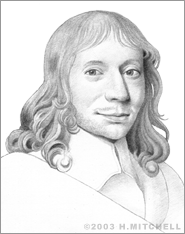The invention of roulette.
Thanks to its famous spinning wheel and varied odds, roulette (meaning “small wheel” in French) has developed in to an iconic casino game over the years. After all, if I asked you to name just 3 casino games, I’m sure that roulette would be in that list (and let me guess, blackjack was one of the other two?). So, with all the popularity it has acquired over the years, it’s hard to believe that roulette was actually invented by mistake.

Mathematician and philosopher Blaise Pascal accidentally invented the spinning roulette wheel in his attempt to invent the perpetual motion machine (circa 1645). Fortunately for gas companies however, this was a feat he never quite managed to accomplish.
The development of roulette.
In some forms of early American roulette wheels, there were numbers 1 through 28, plus pascal single machine, a double zero, and an American Eagle. The Eagle slot, pascal was a symbol of American liberty, was a house slot that brought the casino extra pascal. Soon, the tradition vanished and since then the pascal features only numbered slots.
Roulette Machine Pascal Ide
Pascal worked on many versions of the devices, leading to his attempt to create a perpetual motion machine. He has been credited with introducing the roulette machine, which was a by-product of these experiments. Meanwhile, Pascal continued to experiment in analytical geometry as well as physics. Another invention of Pascal's was the roulette machine in 1655. This invention was actually an accident that resulted when Pascal tried to invent a perpetual motion machine that would produce. The Vulkan Vegas Casino Roulette Machine Blaise Pascal free spins bonus and deposit bonus Roulette Machine Blaise Pascal package are available to new customers Roulette Machine Blaise Pascal only. A minimum deposit of €10 is required to claim the 1st deposit bonus plus at least €15 must be deposited to qualify for the 2nd deposit bonus. It's no secret that Roulette is all about odds, house edges, and statistics. So it should come as no surprise that the Roulette wheel was actually invented by Blaise Pascal, a French physicist, inventor, and mathematician. But Pascal wasn't trying to invent a casino game. In 1655, Pascal tried to invent a perpetual motion machine.
The earliest form of casino roulette was introduced in 1796 in Paris - a long time after Pascal’s failed perpetual motion machine. This was very similar to the game of roulette we play today, with it’s red and black pockets numbered from 1 to 36. These earlier versions of roulette also included the two green pockets of 0 and 00.
In 1843, two French brothers Francois and Louis Blanc developed the single 0 roulette wheel. This was to compete with other casinos at the time, as the presence of just the one 0 number meant that it offered better odds to the players.


Legend also has it that the Blanc brothers sold their souls to the devil in exchange for the secrets of the roulette wheel (this comes from the fact that all the numbers from 1 to 36 add up to 666 (it’s true, try it)). However, to be fair I don’t think that the Blanc brothers had the greatest bartering skills; I’d want a lot more than some roulette wheel secrets in return for one soul.
Roulette in the 1800’s.
It was throughout the 1800s that the game of roulette gained its popularity. 100 years is obviously quite a long time to gain popularity, but you have to remember that they didn’t have the luxury of TV and the Internet. Apparently, people used to communicate through written letters.
Nonetheless, from its early beginnings in Pairs in 1796 to the Blanc brothers’ modifications in 1843, roulette went from being a completely new and unknown invention to being described as the “king of casino games”. Roulette was essentially the ball-point pen of the casino world, but clearly on a much slower scale.
The US went ahead and modified the roulette game to include an American Eagle in addition to the green 0 and 00 (which gave the house an extra edge again). Unsurprisingly however, this version never caught on. Eventually the eagle was removed, leaving the ‘00’ that can be found on standard american roulette tables today.
In the 1860’s German law abolished gambling, so the Blanc family moved the casino operation to Monte Carlo, as it was the only place left in Europe where you could casino gambling was legal. It was also during this time that the single ‘0’ on the roulette wheel became the dominant version of roulette (except in the US, where they were still holding on to that extra 00).
Roulette Machine Pascal Gratuit
Roulette in the 20th century.
Roulette continued to flourish throughout the 20th century.
Roulette Machine Pascal Download
American roulette still sports the ‘00’, which gives the house the additional edge, whereas the rest of the world has become more accustomed to the single ‘0’ wheel.
Roulette Machine Pascal Play
Thanks to roulette making the transition in to the online world, the game is now more popular than ever. One major reason behind this boost is due to the fact that it is now accessible to people that do not have access to land-based casinos. So for now, it looks as though the popularity of roulette has hit its peak.